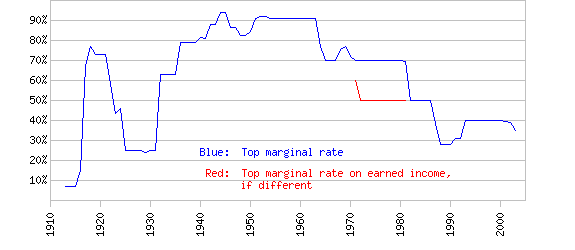In a burst of judicial activism, the Supreme Court on Tuesday upended the gubernatorial race in Arizona, cutting off matching funds to candidates participating in the state’s public campaign finance system. Suddenly, three candidates, including Gov. Jan Brewer, can no longer receive public funds they had counted on to run against a free-spending wealthy opponent…
…
In 2008, the Supreme Court eliminated the Millionaires’ Amendment, which let Congressional candidates raise more money when running against candidates who pay for their own campaigns. In January, in the Citizens United case, the court eliminated limits to campaign spending by corporations. Both cases cited the First Amendment rights of the wealthy, and in that depressing sequence, state finance programs would be the court’s next conquest.
If the court pushes on with its chainsaw, cutting down programs that trigger matching funds, it would threaten systems in Connecticut and Maine, and judicial-race financing systems in Wisconsin, North Carolina and elsewhere. It might even shake New York City’s system, which provides higher matching funds when a well-financed opponent does not participate in the system. Candidates with no prospect of matching funds would be reluctant to join a system that limits their spending. Unless the court veers from its determined path, there will be no limit to the power of a big bankbook on politics.
I remember back when Alito and Roberts were nominated, I expected the Dems to fight. They were both clearly radical right wingers (spare me about Roberts, it was obvious he was a judicial nutjob). But hey, whatever… Even most of my commenters thought I was being unreasonable to expect Democrats to fight, to force the Republicans, if necessary, to use the nuclear option. It was unreasonable to expect a mutli-million dollar public campaign to the make the two of them noxious to the public (doing so with Alito would have been especially easy.
And if the nuclear option had been used would having done so hurt Dems in any way? No. But it would have given Dems one less argument to use against actually doing the right thing in this Congress. Not, of course, that that would have stopped them from doing all the wrong things, since that’s what the majority of Senators want to do.
The NYTimes is full of it in one respect, though, the influence of money on politics in the US is already decisive. This is just an attempt to hammer home that advantage, to make it permanent.
Doing so will make the US into a banana republic, of course, assuming one doesn’t consider it already nothing more than a powerful third world nation living on legacy investments from prior generations.

